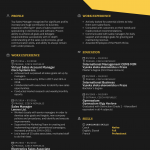How to Reach Financial Independence
There are many ways to reach financial independence. The Financial Independence Formula takes into account how much you spend and save. However, it does not take into account the interest you earn on your savings. Increasing your savings rate and earning a good rate of interest on your savings can help you reach financial independence sooner. If you’re planning to retire early, this is one of the most important steps you can take.
Investing
In order to reach financial independence, you need a sufficient amount of savings and investment income. A person earning $80k per year would need at least 450K to retire comfortably. However, if you invest half of your income in investments, you can shorten your retirement period. However, rebalancing your portfolio is a constant process. If you can’t afford the services of a professional, you can use online tools to manage your account.
If you want to reach financial independence, you should look for companies that can deliver both short-term growth and long-term stability. This will increase your chances of achieving financial independence. But it is important to remember that your long-term growth may take several decades. Therefore, you should invest wisely and in great companies to maximize your chances of achieving this goal.
If you get a raise, make sure to put a portion of your salary into savings. Having more money for investing will make the process easier. Putting aside a portion of your income will also allow you to claim more tax breaks. It is important to remember that you don’t want to miss out on any tax breaks, especially when it comes to investing.
If you’re new to investing, you can seek help from a qualified financial professional. They can help you determine your risk tolerance and set up a portfolio of investments. Stocks can be intimidating, so it is crucial to seek professional advice. Remember, investing in stocks requires time and effort. The rewards, however, will be well worth it.
Saving
Financial independence may sound like a far-off dream, but it is very much achievable with a little planning and knowledge. Founder of investment app Horizon65, Seamus Wolf, shares the steps to achieve this goal. The first step is to take charge of your finances. Identify your financial goals and determine how much money you need to achieve them.
One of the most difficult steps to reach financial independence is to stay away from debt. Debt costs you money every month, and the highest interest rate is usually on credit card debt. You should try to eliminate credit card debt by using the snowball method. For personal loan debt, you can also consider refinancing with Earnest or Lending Club.
Another step in reaching financial independence is investing. By investing your money, you will be able to live off of it later. While you cannot become financially independent overnight, you can live the life of your dreams with your savings and investments. The money you invest will eventually provide enough income to cover all your expenses.
Once you have a goal in mind, make a timeline and break down the steps to achieve that goal. Breaking the savings goal into smaller steps will help you measure your progress and motivate you to continue saving. For example, you may set a goal to pay your own phone bill. By setting realistic goals, you will have a better idea of how long it will take you to reach the goal.
The most important step in reaching financial independence is saving money. While saving money is difficult at first, it becomes easier with practice. When you know why you’re saving, it becomes easier. For example, if you need cash to cover a small emergency, you can use your savings to cover it. This way, you won’t be left with a huge problem.
By saving a minimum of $25,000 per year, you can reach financial independence in 30 years. The Financial Independence Formula is an excellent tool to help you calculate your savings rate and calculate how much time it will take you to reach your goal. However, it is important to make sound investments as this will shave years off of your life.
Budgeting
Financial independence requires long-term planning and foresight, as well as understanding your income, expenses, and lifestyle. It also requires saving and investing for the future. Ultimately, the key to financial independence is spending less than you earn. This means making a budget to measure your income against your expenses, then diverting the difference to your goals.
As a student, you should follow the 50/30/20 rule when budgeting, which means that fifty percent of your income should be dedicated to needs and wants, while the remaining twenty percent should go toward saving and debt repayment. If you have limited income, consider starting a side hustle to supplement your income. You should also build an emergency fund, which should cover at least three months’ worth of living expenses.
It’s very easy to spend more than you earn, but you should try to avoid it at all costs. The Internet is full of temptation, as are “buy now, pay later” offers. The best way to avoid impulsive spending is to make a budget, which lists your essential expenses and the luxuries you can afford. Applying the 50/30/20 rule to your budget will help you stick to your budget and reach financial independence.
Financial independence is achieved when you have enough savings or investments to stop working. It will allow you to live the life you want and pursue your passions. It’s far better than a soul-sucking job with a long commute and an awful boss. You should check your financial independence number regularly, and start saving to meet this goal.
Another step towards financial independence is managing debt. Whether it’s student loan debt, credit card debt, or mortgage debt, you should make a plan to eliminate it. Once you have a plan in place, calculate how much you need to change your spending habits to be debt-free. Start with the debt with the highest interest rate first, and work your way down from there.
If you’ve never budgeted before, take a moment to evaluate your current income and expenses. Make sure to note both your gross and net income. Gross income is the money you make before taxes, while net income is what you take home after taxes. Remember to take into account deductions for health insurance, retirement plans, and income tax.
Reevaluating your plan
Changing circumstances in life can impact your financial goals, so you should reevaluate your plan every six months or so. This can help you cope with unexpected events and recover faster if major setbacks occur. Financial independence is when your investments are sufficient to cover your living expenses and other needs. It is also known as early retirement.
While achieving financial independence can seem like a daunting task, it can be achieved. There are many benefits to being financially independent. It allows you to build a reliable financial plan and achieve what you love. For example, you can expand your education or pursue a new career. You may also choose to start a family, create a business, move to a new city, or reconnect with friends and family. Financial independence also provides a stable environment for your children.















